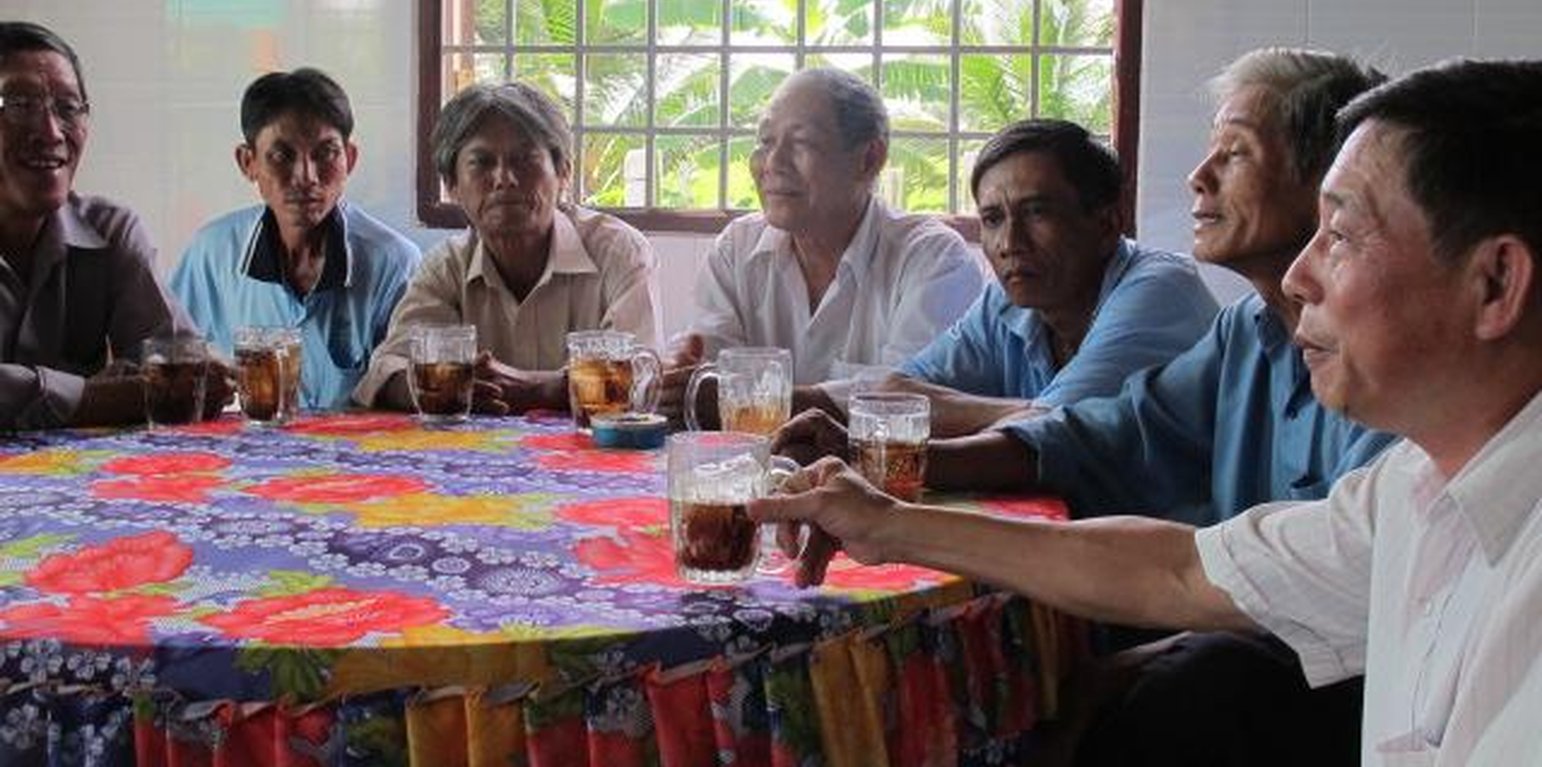



Aims / objectives: A multi-stakeholder participatory process was adopted in formative research, then designing and developing a soap-opera series, launching the programme, followed by implementing on-the-ground support, and monitoring of progress. The stakeholders involved were from research, extension, a video production company and local government. To make sure the educational content was accurately and seamlessly woven into drama, the collaborating team was composed of technical experts and scriptwriters, nicknamed the ‘‘turtles and peacocks’’. Each 15-minute episode is composed of 3 parts: a short drama by comedians, an explanation by experts, and then a summary of the lesson portrayed in that particular episode.
Methods: The LEGATO TV series was produced by Viet Idea, a video company based in Ho Chi Minh City, and was broadcast on Long An TV (LA34) weekly for 20 weeks. The 18 episodes were based on the values grid that LEGATO scientists had developed. They covered a range of topics including organic matter decomposition, organisms and microorganisms, straw burning, rural habitats, the food chain, the architecture of traditional houses, the role of silicon in rice production, honey bees, plant health, eco-tourism and eco-engineering.
Stages of implementation: To popularize and enhance the viewership of the LEGATO Ecological Engineering TV series, a “Meet the Actors Day” was organized in Khanh Hau village, Tan An Town, Long An Province. The organisers comprised “Cong Nghe Xanh”, Long An TV (LA34), Y Tuong Viet (Idea Vietnam), and the Southern Regional Plant Protection Centre. The event was attended by the village People’s Committee Chair, farmers, Long An TV staff and plant protection officers. The “Meet the Actors” day is one of the elements in the entertainment-education approach. To track viewership and audience reactions to the TV series, four focus group discussions (FGDs) were conducted with 41 rice farmers in four villages in Long An province. A post-broadcast survey was carried out in January 2015 among 396 randomly selected rice farmers in Long An and Tien Giang Provinces.
Role of stakeholders: The role of the different stakeholders in the approach was as follows: 1) Farmers provided feedback on the relevance and usefulness of the TV episodes and sug-gested other topics; 2) Plant protection officers worked with TV episode scriptwriters and served as subject matter specialists to simplify the educational content of each episode; 3) Local plant protection experts provided the scientific explanation behind the topics tackled in the episodes; 4) Local government was represented by Dr Nguyen Van Khang, former Director of Agriculture in Tien Giang province who agreed to allocate a portion of the provincial pesticide budget into ecological engineering demonstrations as he required data to be generated locally. Since then, from 2010 to 2014, more demonstration fields were set up.
Other important information: Preliminary analyses showed no significant differences in farmers’ insecticide use, but significant differences were found in beliefs and positions about growing flowers, biocontrol, and silicon use. A follow-up farmer survey was conducted to further eval-uate the effects of the TV series on rice farmers in Tien Giang and Long An Provinces.
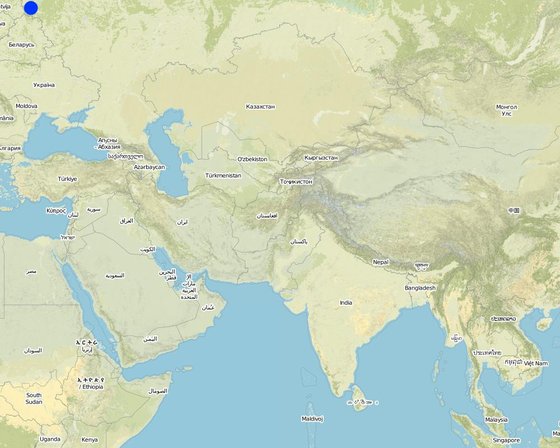
Lieu: Tan An town, Tan Tru, Thu Thua, Ben Luc, Chau Thanh,Tan Phuoc, Cai Lay, Long An and Tien Giang, Viêt-Nam
Date de démarrage: 2014
Année de fin de l'Approche: 2016
Type d'Approche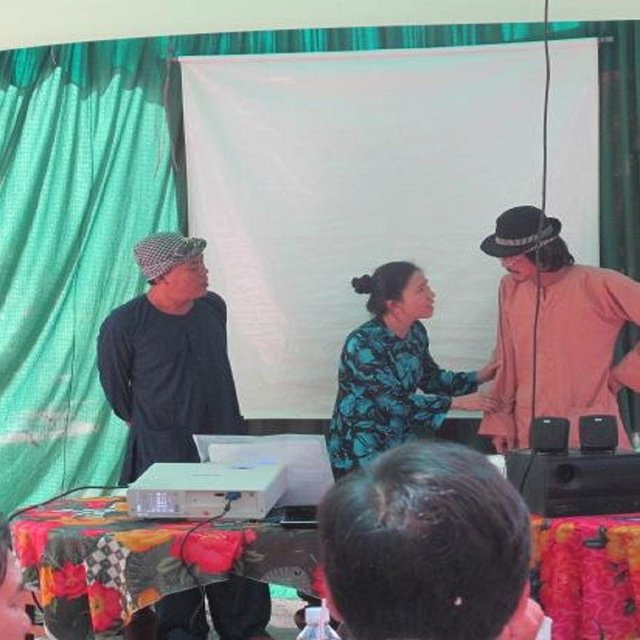
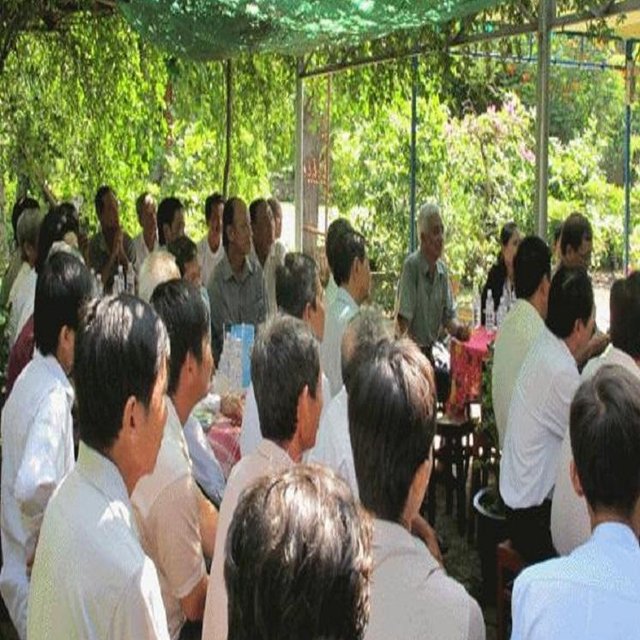
| Quels acteurs/ organismes d'exécution ont été impliqués dans l'Approche? | Spécifiez les parties prenantes | Décrivez le rôle des parties prenantes |
| exploitants locaux des terres / communautés locales | Communication specialist (female), regional director of plant protection (male), ecologist (male) | Farmers, male and female, Vietnamese |
| Spécialistes de la GDT/ conseillers agricoles | Ecologist (male), plant protection director (male) | |
| chercheurs | Visayas State University, Leyte, Philippines | |
| gouvernement local | Local government of Long An province | People's Committee chair (provincial) |
| gouvernement national (planificateurs, décideurs) | ||
| organisation internationale | Center for Agricultural BioSciences International (CABI), Malaysia |
Steps in developing and promoting a soap opera
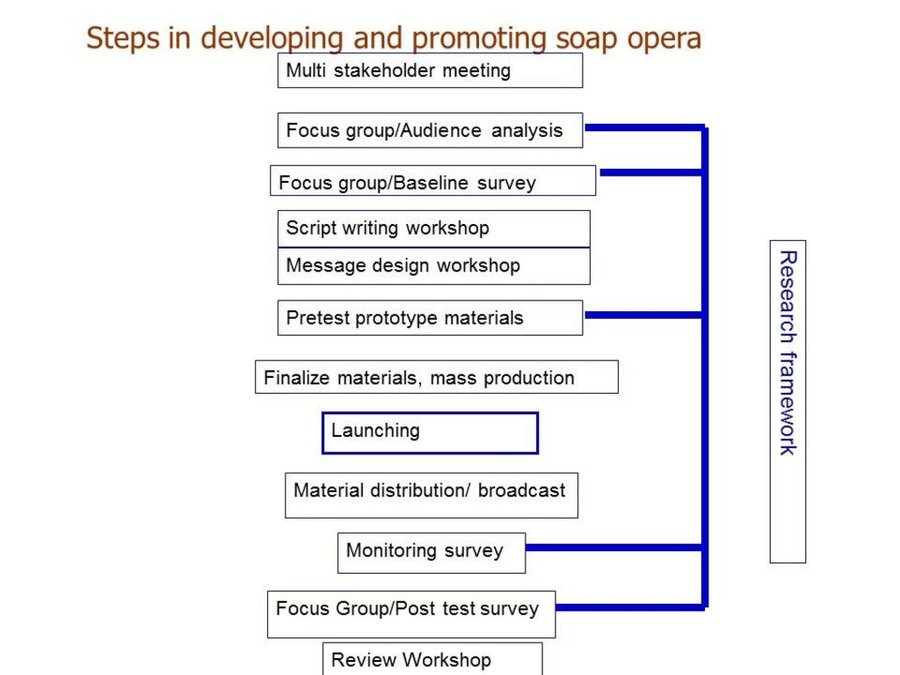
Les décisions ont été prises par
Les décisions ont été prises sur la base de
Principles of ecological engineering and pest management
Research was carried out on-farm
La main d'oeuvre fournie par les exploitants des terres était
Reduction in fertilizer and pesticide use
The problem is likely to be overcome in the near future.